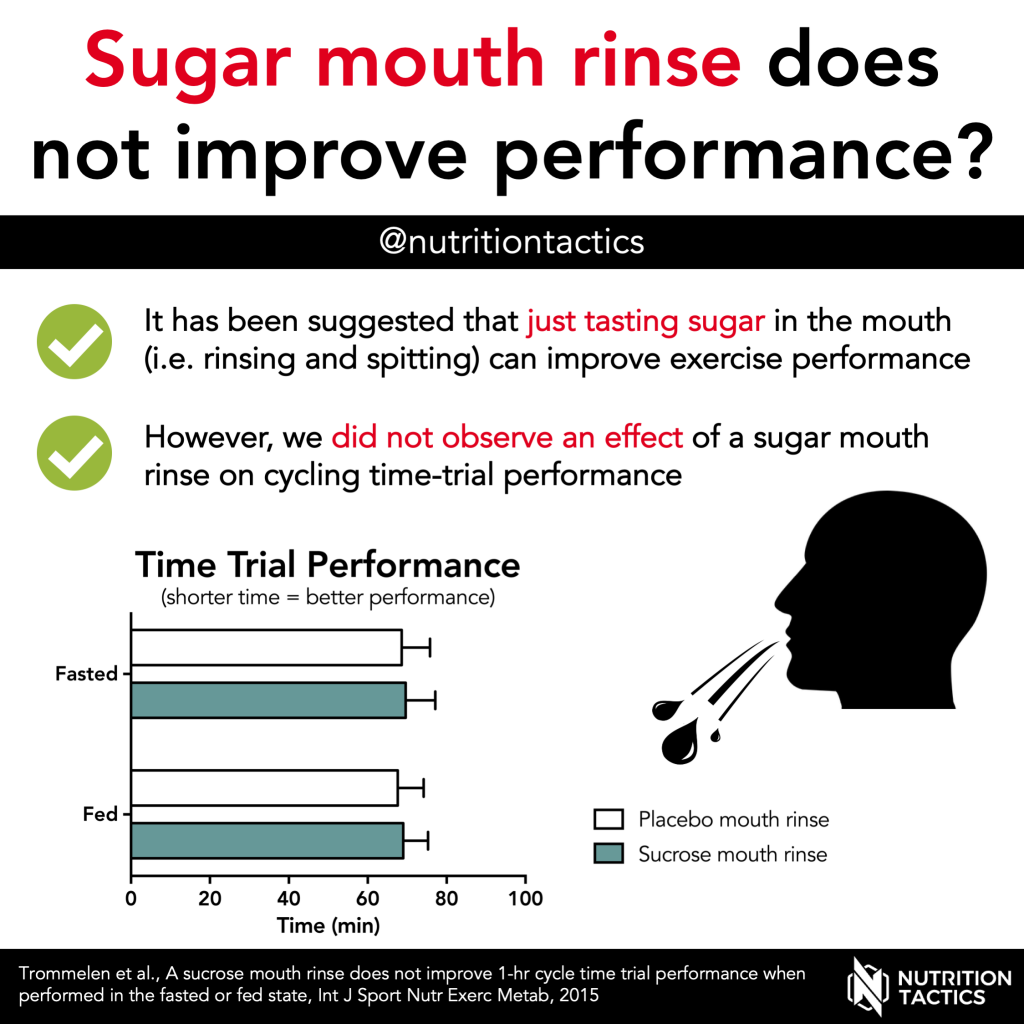Does a sugar mouth rinse improve performance during high-intensity endurance exercise?
Only a relatively limited amount of carbohydrates can be stored as glycogen in the liver and muscle. Therefore, glycogen stores can become a limiting factor during prolonged exercise (>120 min). However, carbohydrates can be ingested during prolonged exercise to improve exercise performance.
Carbohydrates also seem capable to improve shorter-term exercise performance (30-60 min). This is surprising, as glycogen stores should not be a limiting factor during shorter-term exercise. Therefore, it has been speculated that carbohydrates can improve shorter-term exercise performance via stimulation of receptors in the mouth that send signals to the brain that suppress fatigue.
Our study investigated the effect of a sucrose (table sugar) mouth rinse on 1-hour time-trial performance in both the fasted and fed state (after a breakfast). Subjects were well-trained cyclists and received a sugar or placebo (artificial sweetener) mouth rinse at the start and every 12.5% of the total distance during the trial.
The sucrose mouth rinse did not improve performance in either the fed or fasted state.
Some other studies show a benefit from carbohydrate mouth rinsing, while others do not. It is not really clear why this is the case. Athletes should probably first focus on optimizing accepted sports nutrition guidelines before thinking about carbohydrate mouth rinsing.
In conclusion, our study did not find an effect of carbohydrate mouth rinsing in either the fasted or fed state. It remains unclear if carbohydrate mouth rinsing is effective and if so under which circumstances.
This was the last infographic in the carbohydrates series.
Click here to go back to the infographic index


Leave a Reply